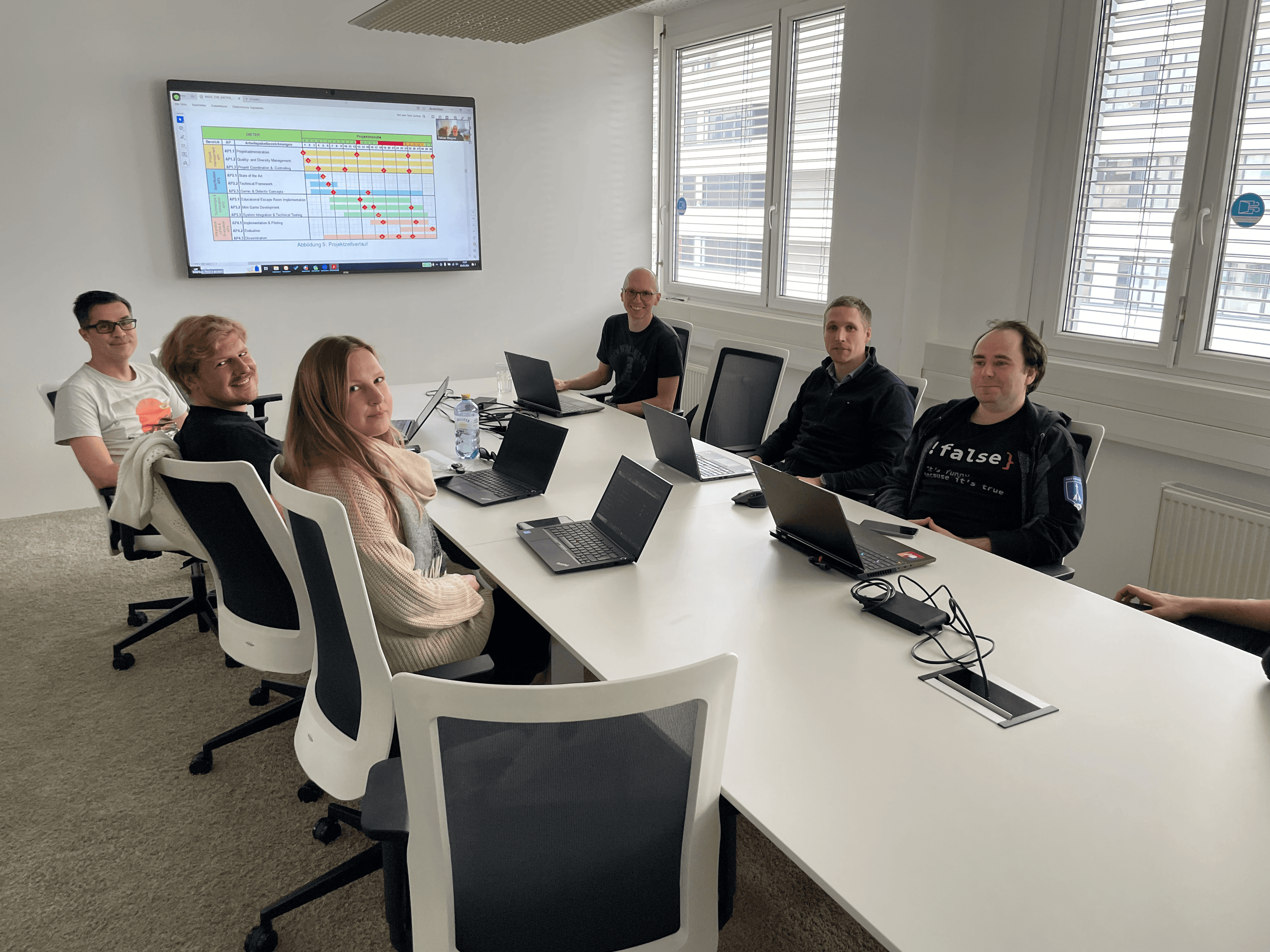Innovative Learning Concept: DIETER – The Educational Escape Room for Stem Subjects

25 April, 2024
The abbreviation DIETER stands for DIgital EducaTional Escape Room for STEM subjects. With the help of this modular and sustainably expandable serious game, young people can engage with STEM content in an entertaining way in various mini-games.
A particularly exciting project that was recently launched at UAS Technikum Wien is DIETER – DIgital EducaTional Escape Room for STEM subjects. It is a digital educational escape room that operates at the interface between schools and universities of applied sciences. Both target groups of the project are to be taught STEM content in a linked, application-oriented and, above all, subtle form to pupils (focus: second secondary level) and first-year students. With the help of this modular and sustainably expandable serious game, young people should be able to engage with STEM content in an entertaining way in various mini-games. The term “STEM subjects” refers to subjects taught, subjects studied and professions in the fields of mathematics, computer science, natural sciences and technology.
DIETER aims to increase learning efficiency
The DIETER project aims to increase learning efficiency, strengthen cross-system thinking and contribute to sustainable knowledge building, thereby also reducing the drop-out rate of first-year students due to STEM-related deficits in the introductory phase of their studies.
DIETER simulates a fictional scenario in a modern research station on Vienna’s Danube Island, where players find themselves in the midst of the effects of climate change. In teams and alone, they have to solve a wide range of challenges, from repairing the overloaded power supply to fixing burst water pipes and problems in the control system of an indoor food plantation. Behind these challenges are STEM basics such as vector calculus, which are then discussed together with the teachers.
Expansion of the qualitative digital teaching offer
DIETER not only creates a new, exciting learning format that can be expanded at any time thanks to its open-topic concept, but the research project also actively contributes to strengthening the educational resilience of students and pupils. The research project is a good example of what the expansion of qualitative digital teaching can look like. This ambitious project was launched at the beginning of March 2024 and will run until August 2026 and is funded by the City of Vienna
Further Link:
www.technikum-wien.at/forschungsprojekte/dieter/
In the picture, from right to left: Jürgen Konrad (Kompetenzfeld Software Engineering and Architecture), Philipp Urbauer (Kompetenzfeld Software Engineering and Architecture), Projektleiter Markus Petz (Kompetenzfeld Software Engineering and Architecture), Alexander Nimmervoll (Kompetenzfeld Cloud Service and Security), Lukas Schnabel (Teaching and Learning Center) and Eva Hüll (Kompetenzfeld Angewandte Mathematik und Statistik).
